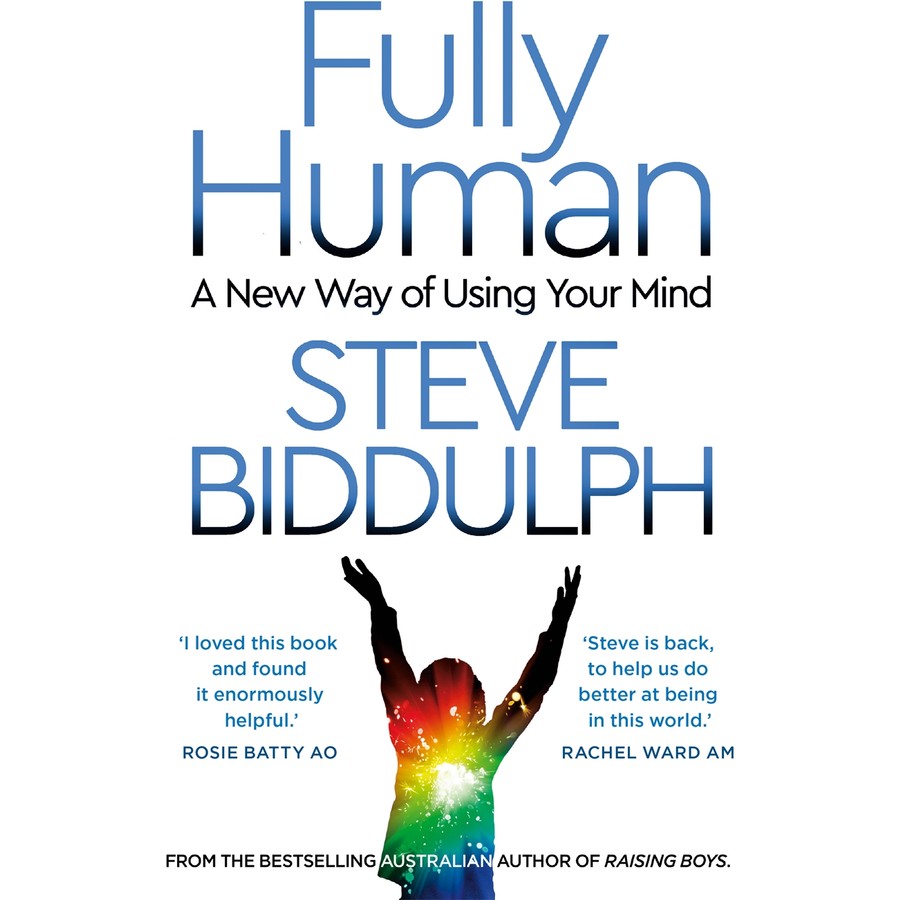Acclaimed author Steve Biddulph speaks to Placement Solutions at our latest PD

I imagine most of you know the name Steve Biddulph, psychologist, writer and speaker. Steve has been a fixture in the Australian, and indeed international, parenting education landscape for over 30 years. His books, including The Secret of Happy Children, Raising Boys, Raising Girls and many others, have been translated into dozens of languages and can be found in millions of homes.
We recently welcomed Steve to the Placement Solutions family, presenting a webinar on the back of his latest book, Fully Human: A New Way of Using Your Mind. Steve spoke to us about how the themes of this book can be applied to the care of children, whether as parents or carers.
He started by sharing a story from the book about a patient who presented to him with anxiety early in his career. It turned out her situation had been initiated after she went to help someone in a train station carpark but, for no discernible reason, pulled back at the last minute. She drove away in panic.
‘There’s a part of us which knows what’s what. It is always there, always functioning,’ said Steve.
In this case the woman’s gut reaction had been well founded. Later on the news she saw that this same stranger in the car park had gone on to assault another person shortly afterwards.
Steve made the point that our gut feelings, which form in the right side of the brain – the ‘wild creature side’, as he called it – can very often be right, even where we aren’t able to describe those feelings in words.
We can draw on these feelings in our dealings with others, including children. And vice versa. Steve spoke about how newborn babies are acutely aware of the facial expressions of those around them, and of the mood between two people – such as their parents. Babies care very little about the physical conditions around them, but ‘they care a lot about the emotional vibes around them’.
Steve spoke about how some research suggests that the connections between a baby and its carer are so strong, in the sense of the baby’s right brain reflecting their carer’s, that ‘carer and baby should be treated as a single unit’. In other words, if we want to develop strong mental health in our children, we need to support the mental health of those who care for them.
A very important component of this is the need to be completely present with the child you care for. ‘You’ve got to be there for a child,’ he said. This takes time. ‘Hurry is the enemy of love.’
His advice was to focus on yourself for a moment. ‘Go down the middle of your body and notice what’s going on inside. As you notice you will automatically start to settle. And the child will notice this.’
Steve went on to describe the ‘four-storey mansion’ that makes up our minds, consisting of the body on the ground floor, followed by our emotions, our intellect and our spirit. As is often the case with someone as knowledgeable as Steve, at this point he ran out of time. ‘I could talk for hours about this,’ he said, and we know he could!
Thanks, Steve for a fascinating webinar. We look forward to reading your book.

